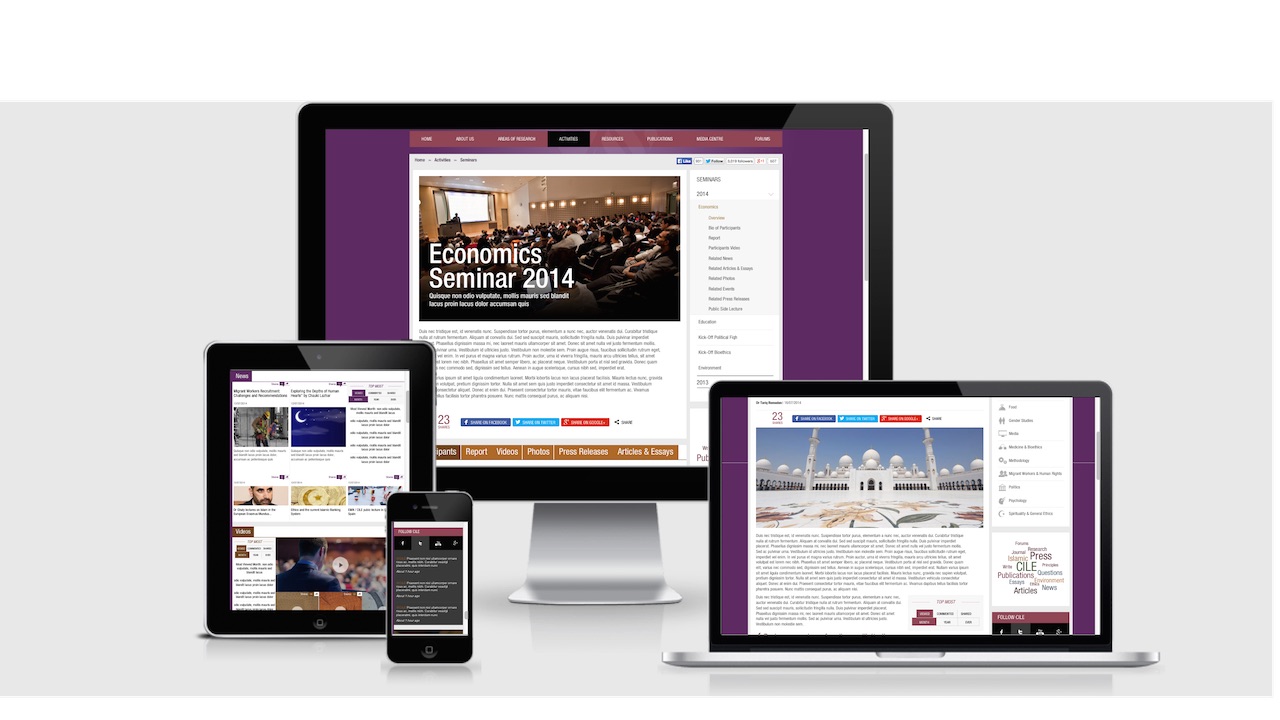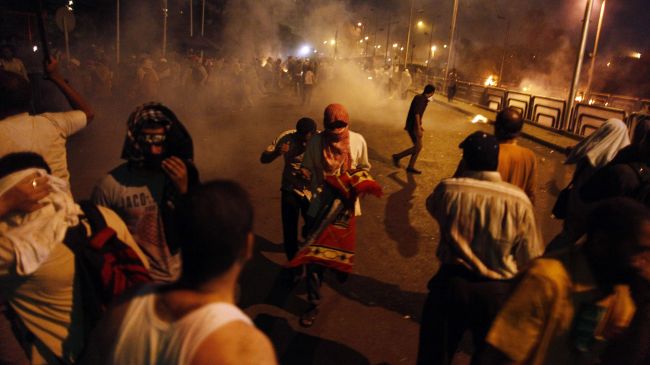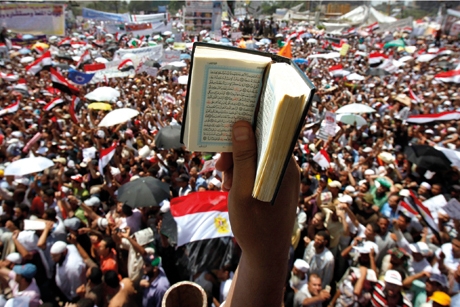(Lecture in Japan held on 3rd November 06)
Thank you so much for this introduction and this invitation. This is my first time in Japan, and it is a great pleasure to take part in this seminar and workshop, to be here with you, and to try to share with you some views about the situation in Europe and the state of affairs there at present. I will speak about the reality not only of the Muslim presence, but also of what the Muslim presence reveals about the situation of Europe and the deep discussions we have today around European identity, pluralism, and the future of these pluralistic societies. As it is very difficult to tackle such a complex issue in 15 minutes, I just want to highlight some points so that after the presentations, out of our discussions and dialogue, maybe we can go deeper in different directions.
The Need for Intra-European Dialogue
Let me start with a short introduction. A few weeks ago – it was in fact just after the Pope’s statements in Germany — I wrote an article saying that maybe what Europe needs more, is much more dialogue with itself, rather than only a dialogue with other civilizations. Yes, a dialogue of civilizations is preferable to the well-known theory of a clash of civilizations, and yes, dialogue is needed at different levels. But this presumes that Europe already knows what Europe is all about and how it should define itself. Thus, out of the Pope’s statements emerges a real need to seek a deep understanding of the historical dimensions and the current realities that Europe now faces.
This dialogue is needed today because, as you said, a new racism or new questions are beginning to be perceived. The Muslim presence in Europe challenges the perception that Europeans have of themselves, and that Europe has of itself. In Europe, we have new trends, new questions, new problems, new very sensitive discussions around the Muslim presence, taking place in every single European country. Of course we heard about France, we heard recently about the UK…but similar situations can also be found in Denmark, Spain, and everywhere in Europe – every single society has these deep questions: who are we, what is the reality of our country, and how will our future be?
Deep down, there is the question of identity, but in fact, this Muslim presence is revealing some of the problems that European countries are facing today. After the Pope’s statements, many Muslims, and not only those in Europe, reacted to his connection of Islam with violence, and in particular, to his connection between the prophetic traditions (or the prophetic teachings) and violence. Straight after hearing about this lecture, I went and read the whole lecture, and the main point is not violence. The main point is the Pope’s perception and way of defining Europe and Europe’s past.
He was quoting a very important Muslim philosopher, Ibn Hazm. While Ibn Hazm *** was a great philosopher, he represents only a marginal trend. And yes, it is true that in this marginal trend, the relationship between faith and rationality was not something essential to Ibn Hazm. By quoting Ibn Hazm, and by quoting this marginal trend within the great mainstream Islamic tradition, the Pope was revealing something really important: the perception he has about the past of Europe. He was in fact sending two main messages.
The first one was to the secular Europeans telling them implicitly, « If you forget about Christianity, you will never be able to talk to other religions, because Christianity is central to the building – the construction – of the European identity. » So he was sending a message to these philosophers or « new thinkers » in Europe, who promote secularism and a kind of « enlightenment » that implies exclusion of Christianity. At the same time, he was sending another message – which was also for the Muslims in Europe – saying implicitly and explicitly that there is a special relationship between Christianity, rationality, and the Greek tradition, and that Islam is outside the picture of Europe’s roots.
Two messages – which are really important ones, because in fact the Pope was redefining Europe’s past and Europe’s roots saying, « these are the roots of Europe. » He was portraying the same picture of Europe that we knew he had before becoming Pope. Before being Pope Benedict XVI, he was Cardinal Ratzinger, and had entered discussions about Turkish integration in Europe. His position from the very beginning was, « No. » Why? « Because they are not part of the European culture and Turkey is not a European entity. » And here by questioning the very nature of Turkish identity, culture, and religion, he was at that time already implying that, « Europe is a Christian entity; it is a Christian reality. » And so now in Germany, he simply connected this previous view to the Greek tradition.
Given this discourse, therefore, the discussion about violence is relatively marginal. The deep problem is how to define European identity. If we follow the Pope’s definition of a Europe of « rationality and Christianity », then what about others in Europe? It is really this that we are struggling with today, and this is coming out of the Muslim presence. If you listen and follow – at the highest level – the discussion in Europe about Turkish integration, you will have a second revelation of the deep, implicit questionings in Europe. For some of the EU MPs, state parliamentarians, and others, the question is, « Is it possible for us to integrate Turkey, because it is a Muslim country, whereas we have a Christian identity, we are a Christian group? » German deputies, other politicians, and even a former French President said this. « Look, they are not really Europeans, it is not a European country. » Today, Sarkozy, who may be the next French President, put it in these words, « Turkey is not part of Europe as to its culture and religion. » These high-level questionings speak not even about principles, human rights, or meeting the conditions for joining European countries at the legal level. They simply state, « Turkey is not part of Europe. » And by saying this, people are forgetting that millions of Europeans are already Muslims: in France, in the UK, in all European countries. So we are asking about the religion of people in Turkey, while forgetting that already millions of Europeans are Muslims, and that already Islam is a European religion. The perception here is problematic because European society is not being examined, due to fear of seeing this reality.
Faith and Rationality in the Abrahamic Religions
The Muslim presence today is thus being greeted with a new fear, and this fear is nurturing questions about identity, questioning European identity on historical grounds, and I think that this is really essential. Europe is perceived as relying on a distinction between Church and State. Many Muslims avoid discussing this by saying, « In Islam there is no Church, so we do not have this stipulation. » But this is not the question; the question is not « Church and State », the question is « faith and rationality »: is there a possible distinction between the realm of faith or dogma, and the realm of rationality, meaning ‘discussion, negotiations from the people’? Is there, in Islam, something that is open to this? Or is it intrinsically incompatible with the European tradition?
If we go back in history, we can understand that this discussion originates both with Orientalists, and with Muslims saying, « In Islam we do not have a distinction between faith and rationality, Church and State. » This is incorrect. If we revisit the history of Islamic tradition, we find that from the Middle Ages, we had Islamic philosophers, and we had a legal system. One of the most important jurists in Islam is Shatibi, a European who dealt with rationality, and who distinguished between the realm of dogma, Al-Ibadat, and the domain of social affairs, al-Muamalat. This work may be old, but Muslims by their presence in Europe should revisit this, and at the same time, all Europeans should understand that the distinction between faith and rationality is not alien to the Islamic tradition. Shatibi’s work is, in fact, the answer to the Pope’s statement: there is active, deep rationality in the Islamic tradition, and there is a distinction between the two spheres.
This brings up a question that has a long history: what kind of relationship do we have between rationality and ethics? This question is asked today in the Muslim tradition, as it was asked in the Jewish tradition, and the Christian tradition, and the Muslim tradition of old. What are the limits of rationality? Could we, in the name of reason, do anything which is rationally possible? Or is there something to be asked, such as, « Is it reasonable to do it? » We should remember the saying of the French humanist writer, Rabelais, « Science without conscience is the soul’s ruin. » This is something that we are asking all together; all the Abrahamic traditions are asking how to reconcile science and conscience, science and ethics. This question comes from the deep European traditions, among which Islam is to be considered; Islam is not alien to this process of questioning.
The Dangers of a New Racism
Lastly, the Muslim presence within European societies is now questioning three central concepts. The first one is pluralism. For example, when we speak about freedom of speech, when we speak about the limits of freedom of speech, pluralism is a central question. The second concept is neutrality. What does the « neutrality of the public sphere » actually mean? This relates to discussions, for example, about religious science in the public sphere, or the headscarf. Discussions have emerged in France, and are now ongoing in the UK. We have a very deep discussion going on in Switzerland about minarets. The main party now, the UDC, wants these to become invisible, because their visibility is said to threaten the European or the Swiss identity. Hence these discussions are said to be linked to » neutrality. » And the last concept is that of equal citizenship. If we are all equal citizens, and if there is no such thing as « minority citizenship » in Europe, then what does it mean to be a minority? This question is not new. The Jewish presence during the 1930s and 1940s raised exactly the same question, and we have to be very cautious not to see a new racism arising in Europe.
To summarise this presentation, the contemporary questions we see today are also historical questions we have faced in the past. The Abrahamic traditions have had, and continue to have, similar approaches to the important questions of rationality, ethics, and pluralism. Thank you.
**************************************************************************
Question and Answer Session: “Identity Crisis of a Continent: Europe’s Search for Itself”
Texts and Context: Rooting Reform in the Islamic Tradition
(Ramadan) Yes, your question raises the issue of defining the concepts we are using. For instance, we may speak about reformism, without agreeing on its meaning or content. I think that the mainstream reality in Muslim communities today in Europe – but not only in Europe, I think it is an international reality – is that Muslims are trying to be faithful to their principles, while taking into account the contexts within which they live.
The questions are about limits: to what extent can you be true to both faithfulness and evolution? I think that even the concept of reform is misunderstood by many Muslims, when it is likened to following in the footsteps of other traditions. Therefore we have to root reform in the Islamic tradition. In the Islamic legal tradition, some things, I think, are immutable; for example, the creed or the practices are not going to change. But there are things that are subject to change, and we have to determine this, especially in social affairs.
So today, the mainstream discourse – let us just speak today about Europe – is that we need something that is adapted to the European reality. The issue, therefore, is: what is the limit? Going back to what you said about the Qur’an, for example. I am from a reformist tradition, but for me, the Qur’an is the very word of God. For me, the issue is not to put this into question, but rather to ask how this book, the Qur’an, could be understood as eternal words within historical circumstances – meaning that we have to contextualize some verses. I believe the reformist tradition is the one that will help to find new solutions to new challenges. There is an intra-community debate among Muslims, among Muslim scholars, and this is the reality.
Now, I have some questions about whether this follows in the footsteps of others in Europe: the Christian tradition, or the Jewish tradition. I still think that we have to be cautious not to confuse between the traditions. The intra-religious tradition in the Jewish tradition differs from that in the Christian tradition, and both differ from that in the Islamic tradition, even though the three traditions have common trends. You have people saying there is no way forward, except to take into account history, context, societies, and evolution. I think that for me, for example, it is clear that there is no faithfulness without evolution. This is the exact opposite of what literalists may believe, which is that the only faithfulness is the status quo. I think faithfulness is to take into account evolution, and to take into account new challenges, and to come with new answers.
Nurturing Positive Responses to Pluralism: A Global Challenge
(Ramadan) Yes, I think I was asking myself – during our discussions about Europe, Asia, and the US before – « Why are we here? » We can look at the European reality as an exotic reality – it is far from here – but by sharing our experiences in this globalized world, we realize we are dealing with exactly the same problem, when we look and listen to what is going on here. In your country, in Japan, it is really also about, you know, how to meet the challenges of the modern world and at the same time to protect one’s identity, culture, and religion. We are all facing this. And I think that out of what we are talking about here, there are two main paths before us. The first way is to indulge in fears and to be scared about « what is not me »; the second way is to embrace a pluralistic society, in the middle of this globalized world. This takes effort. Sometimes people in Europe are afraid of my presence, not because of me, but because they do not know who they are. So because they do not know who they are, they are scared of the person coming, who appears relatively self-assured in identity.
I think that here in Japan it is equally important to know who you are, what you want, and how you can deal with others. As you said, when you are self-confident, you can deal with others with confidence. This is based on knowledge, rather than on an obsession with defining oneself against another. I am advocating multiple identities. You do not only have one cultural and religious identity, you have more than that, and this understanding is really important.
And the last point is exactly what you are doing at the academic level. You have this strength in trying to let people understand each other, to come within academia to talk. We need to do this at the academic level. We need to do it at the grassroots level, to come together, to work together; and there is no way but to come to this mutual understanding out of common work, common commitment to our society. Discourses or theories are not going to create change; change is really at the grassroots level. I think it is important to ask yourself here in your country, with how many people from different background are you dealing with in your daily life, in order to be able to deal with pluralism, not in theory, but in a practical way. This is, I think, what my own European experience is just shaping in my heart and in my mind, in my spirituality and in my knowledge. My cognitive approach towards problems is shaped by how I deal with things in daily life.
So, do not think about the European experience as something that is far from you. It is at the center of your own construction, identity construction, and future construction. Thank you.









